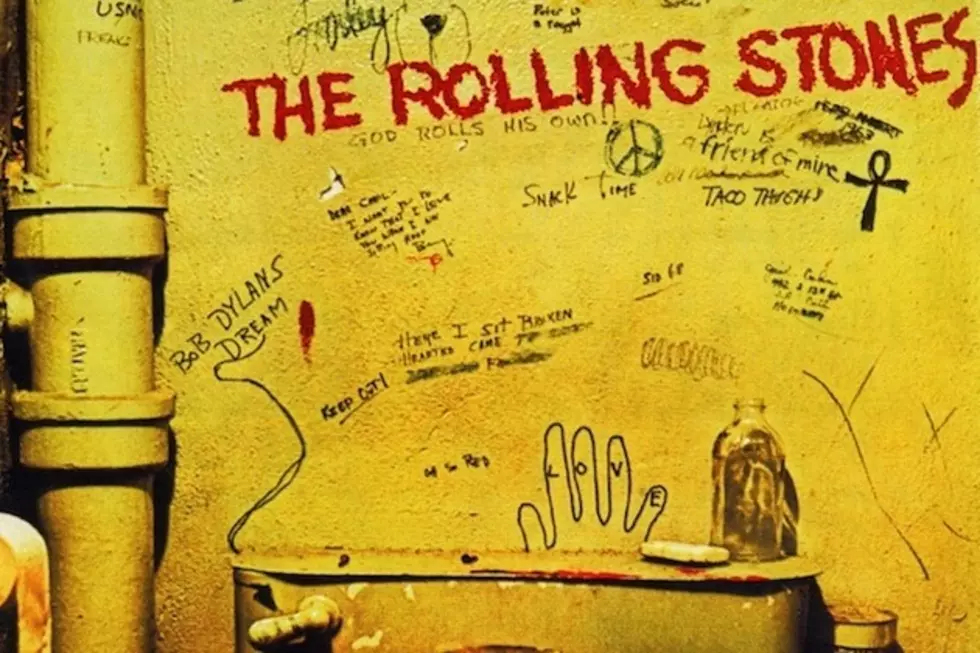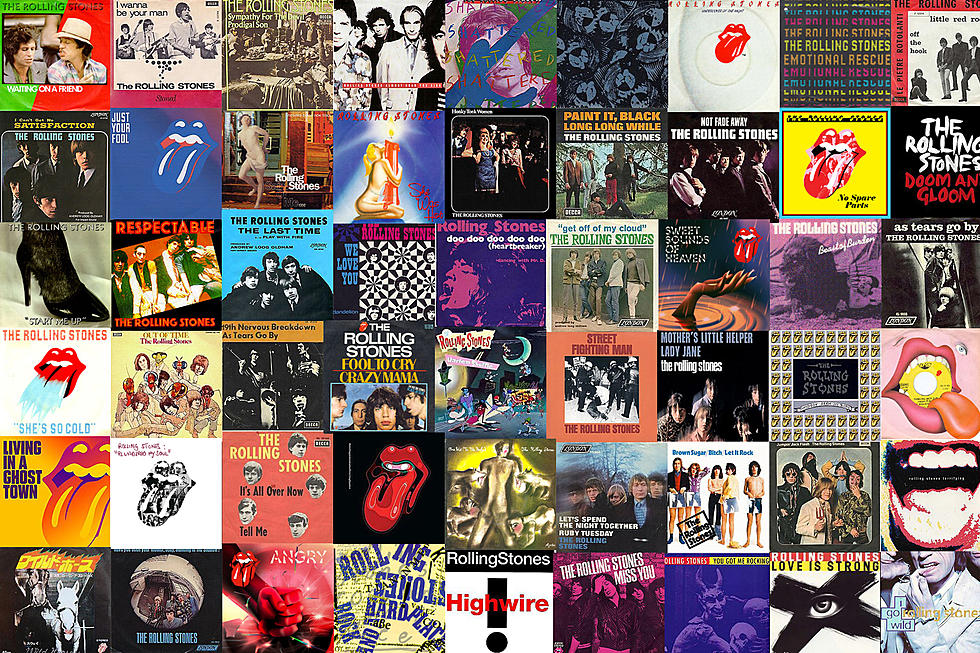
When the Rolling Stones Entered Their Classic Period With ‘Beggars Banquet’
If the release of "Jumpin' Jack Flash" six months earlier wasn't enough of a clue that the Rolling Stones' flirtation with psychedelia was over, their next move proved it. On Dec. 6, 1968, the Stones unleashed Beggars Banquet onto the world.
But the band didn't do a complete return to their roots in Chicago electric blues. Instead, they built upon them, adding both acoustic guitars and African rhythms into the mix while expanding their worldview. The result was their first truly great start-to-finish album.
As Bill Janovitz of indie-rock band Buffalo Tom notes in his book, Rocks Off: 50 Tracks That Tell the Story of the Rolling Stones, a large part of its brilliance is that Mick Jagger doesn't just sing the songs on Beggars Banquet; he also acts them out, inhabiting the characters like never before. "From the narrator of 'Street Fighting Man' to the hick in a shotgun wedding in 'Dear Doctor' to the Devil himself in 'Sympathy for the Devil,'" Janovitz writes. "It was as if he were changing costumes between songs."
Janovitz also notes that Jagger was reading a lot of philosophy and poetry at the time, a result of the influence of Marianne Faithfull, and that made its way into the lyrics. The album finds the Stones commenting on the turbulent world around them with a tone that expressed both dissolution and ambivalence. The slash-and-burn attack of "Jigsaw Puzzle" eventually gives way to the praise for the working man in "Salt of the Earth," where they reveal their own detachment from the public: "When I search a faceless crowd / A swirling mass of gray and black and white / They don't look real to me / In fact, they look so strange.'
Unfortunately, by this time, Brian Jones was spiraling out of control. His escalating drug use led to him repeatedly missing recording sessions in the spring and summer of 1968, and was incredibly difficult to work with on those occasions where he did show up. His only meaningful contributions were the sitar on "Street Fighting Man"' the harmonica on "Parachute Woman" and the slide guitar on "No Expectations." Six months after the album's release, he was fired from the band, and he died less than a month later.
Because of Jones' problems, Keith Richards handled most of the guitar work. During the recording of the album in the summer of 1968, Richards began experimenting with his guitar style after Ry Cooder showed him how to tune his guitar to an open G chord. "I found working with open tunings that there's a million places you don't need to put your fingers," Richards wrote in his autobiography, Life. "The notes are there already. You can leave certain strings wide open. It's finding the spaces in between that makes open tuning work. And if you're working the right chord, you can hear this other chord going on behind it, which you're actually not playing."
Listen to the Rolling Stones Perform 'Street Fighting Man'
Richards made one change to the tuning, removing the bottom string because it "got in the way." This unique five-string setup would help him write dozens of riffs for Rolling Stones classics over the next few decades.
It was also that summer when Richards struck up a friendship with Gram Parsons. "Within a day or two I thought I'd known him all my life," Richards wrote. "Gram taught me country music – how it worked, the difference between the Bakersfield style and the Nashville style." Parsons' influence can be heard in "Dear Doctor" and "Factory Girl," as well as later songs like "Dead Flowers" and "Torn and Frayed."
The Stones hadn't totally abandoned sex, of course. "Stray Cat Blues," which Jagger admitted in 1977 was sonically ripped off from the Velvet Underground's "Heroin," is a straight-up piece of sleaze rock so awesomely raunchy that Gene Simmons has spent his entire career trying to catch up to it.
And then there was the cover. After a failed attempt at a photo shoot in which the Stones dressed up, literally, as beggars at a banquet, they wanted a shot of a dirty toilet in front of a graffiti-filled wall. However, their record company, Decca, found this in bad taste and refused to release the album. Eventually, the group gave in and went with a white cover with their name and album title written in a fancy script, designed to look like an invitation.
Beggars Banquet, their first album produced by Jimmy Miller, ushered in what most consider to be the Stones' best period, with Let it Bleed, Get Yer Ya-Ya's Out! The Rolling Stones in Concert, Sticky Fingers and Exile on Main Street coming out in the next four years.
More on 'Beggars Banquet':
Top 10 Covers of 'Beggars Banquet' Songs
10 Things You Didn't Know about 'Beggars Banquet'
The Rolling Stones Record 'Sympathy for the Devil'
'Sympathy for the Devil': Top 100 Classic Rock Songs
When the Rolling Stones Were Forced to Change 'Beggars Banquet' Cover Art
Rolling Stones Albums Ranked
More From Ultimate Classic Rock









